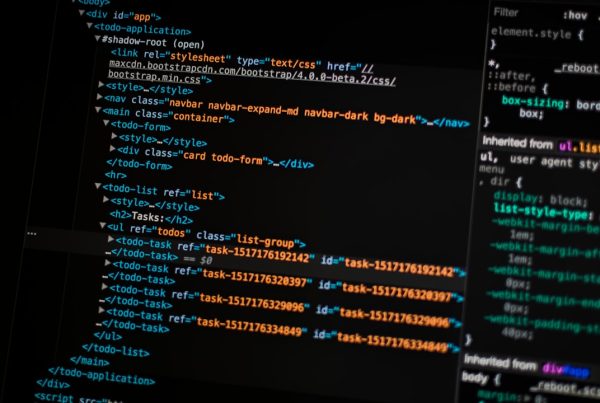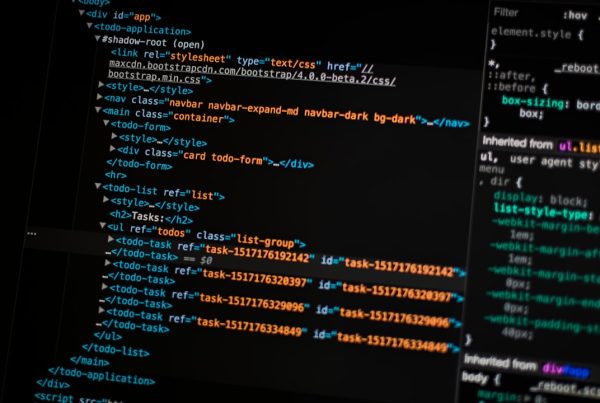SQL injection is a prevalent and dangerous web security vulnerability that allows an attacker to interfere with the queries that an application makes to its database. When you develop applications that interact with databases, you may inadvertently expose them to this type of attack if you do not properly handle user input. Essentially, SQL injection occurs when an attacker is able to manipulate the SQL statements executed by your application, often by injecting malicious code into input fields.
This can lead to unauthorized access to sensitive data, data corruption, or even complete control over the database. To grasp the severity of SQL injection, consider how it can be exploited. An attacker might enter a specially crafted input into a form field, which your application then incorporates into an SQL query without proper validation or sanitization.
For instance, if you have a login form that directly incorporates user input into an SQL statement, an attacker could input a string that alters the intended query. This could allow them to bypass authentication or extract confidential information from your database. Understanding this vulnerability is crucial for anyone involved in web development, as it underscores the importance of secure coding practices.
Key Takeaways
- SQL injection is a common attack where malicious SQL statements are inserted into an entry field for execution
- Best practices for writing secure PHP code include validating and sanitizing user input, using prepared statements, and limiting database privileges
- Prepared statements and parameterized queries help prevent SQL injection by separating SQL logic from user input
- Sanitizing user input involves removing or encoding potentially harmful characters to prevent SQL injection attacks
- Implementing input validation ensures that user input meets specific criteria before being processed to prevent SQL injection and other security vulnerabilities
Best Practices for Writing Secure PHP Code
When you write PHP code, adopting best practices for security is essential to protect your applications from vulnerabilities like SQL injection. One of the first steps you should take is to familiarize yourself with common security threats and how they can be mitigated. This includes understanding not only SQL injection but also other vulnerabilities such as cross-site scripting (XSS) and cross-site request forgery (CSRF).
By being aware of these threats, you can implement strategies to safeguard your applications effectively. Another best practice is to keep your code clean and organized. This not only makes it easier for you to identify potential security flaws but also helps other developers who may work on your code in the future.
Use meaningful variable names and comments to clarify your intentions. Additionally, consider using frameworks that emphasize security features, as they often come with built-in protections against common vulnerabilities. By following these practices, you can create a more secure environment for your applications and reduce the risk of exploitation.
Using Prepared Statements and Parameterized Queries

One of the most effective ways to prevent SQL injection is by using prepared statements and parameterized queries. These techniques separate SQL code from user input, ensuring that any data provided by users cannot alter the structure of your SQL commands. When you use prepared statements, you define the SQL query with placeholders for user input, which are then bound to actual values later in the execution process.
Sanitizing User Input
| Input Type | Sanitization Method | Example |
|---|---|---|
| Text | HTML Purifier | <script>alert(‘Hello’)</script> |
| URL | URL Validation | http://example.com?query=<script>alert(‘XSS’)</script> |
| Number | Input Validation | 12345 |
Sanitizing user input is another critical step in securing your PHP applications against SQL injection and other vulnerabilities. This process involves cleaning and validating data received from users before it is processed or stored in your database. By ensuring that user input adheres to expected formats and does not contain harmful characters or scripts, you can significantly reduce the risk of exploitation.
To effectively sanitize user input, you should implement a combination of techniques tailored to the specific context of your application. For example, if you expect a numeric value, ensure that the input is indeed a number and reject any non-numeric characters. Similarly, if you’re dealing with strings, consider stripping out any HTML tags or special characters that could be used for malicious purposes.
By taking these precautions, you create a safer environment for your application and protect both your data and your users.
Implementing Input Validation
Input validation goes hand in hand with sanitization and is a fundamental aspect of secure coding practices. While sanitization focuses on cleaning user input, validation ensures that the data meets specific criteria before it is processed. This means checking whether the input conforms to expected formats, lengths, and types.
By implementing robust input validation mechanisms, you can catch potential issues early in the process and prevent harmful data from entering your system. For instance, if you’re collecting email addresses from users, you should validate that the input matches a standard email format before proceeding. Similarly, if you’re accepting dates or phone numbers, ensure that they conform to expected patterns.
By enforcing strict validation rules, you not only enhance security but also improve the overall quality of data collected by your application. This proactive approach helps mitigate risks associated with SQL injection and other vulnerabilities.
Escaping Special Characters

Escaping Special Characters
Escaping special characters is a crucial technique to safeguard your PHP applications from SQL injection attacks. When user input is incorporated into SQL queries, certain characters can alter the intended meaning of the query if not handled properly. By escaping these characters, you ensure that they are treated as literal values rather than executable code.
PHP Functions for Escaping Special Characters
In PHP, functions like `mysqli_real_escape_string()` or `PDO::quote()` can be used to escape special characters in strings before they are included in SQL queries. These functions provide an additional layer of security against SQL injection attacks.
A Comprehensive Security Strategy
While escaping is a useful technique, it should not be relied upon as the sole method of protection against SQL injection. Instead, it should be used in conjunction with prepared statements and parameterized queries for a more comprehensive security strategy. By combining these approaches, you create multiple layers of defense against potential attacks.
Limiting Database Privileges
Another essential aspect of securing your PHP applications is limiting database privileges for users and applications interacting with your database. By following the principle of least privilege, you ensure that each user or application has only the permissions necessary to perform its intended functions. This minimizes the potential damage that could occur if an attacker gains access to your database.
For example, if your application only needs to read data from a database table, do not grant it permission to delete or modify records. Similarly, avoid using administrative accounts for routine operations; instead, create specific accounts with limited privileges tailored to each application’s needs. By carefully managing database permissions, you can significantly reduce the risk of unauthorized access and protect sensitive data from potential breaches.
Regularly Updating and Patching Your PHP Code
Finally, one of the most critical practices for maintaining secure PHP applications is regularly updating and patching your codebase. Software vulnerabilities are continually discovered, and developers release updates to address these issues promptly. By keeping your PHP version and any libraries or frameworks up to date, you ensure that you benefit from the latest security enhancements and bug fixes.
In addition to updating PHP itself, it’s essential to monitor third-party libraries and dependencies used in your application. Many popular libraries have active communities that release updates regularly; staying informed about these changes can help you avoid potential vulnerabilities introduced by outdated code. Implementing a routine for checking for updates and applying patches will go a long way in safeguarding your applications against emerging threats.
In conclusion, securing your PHP applications against SQL injection and other vulnerabilities requires a multifaceted approach that includes understanding potential threats, adopting best practices for coding, utilizing prepared statements and parameterized queries, sanitizing user input, implementing input validation, escaping special characters, limiting database privileges, and regularly updating your codebase. By taking these steps seriously and integrating them into your development process, you can create robust applications that protect both your data and your users from malicious attacks.
To further enhance your understanding of securing PHP applications against SQL injection attacks, I recommend reading an insightful article available on Cyber Security Decoder. This article provides a comprehensive overview of best practices and techniques to safeguard your PHP applications. You can access the article directly by clicking on this link: Protecting PHP Applications from SQL Injection. It’s an essential read for developers looking to bolster their web application security.
FAQs
What is SQL injection?
SQL injection is a type of cyber attack that allows hackers to insert malicious SQL code into input fields on a website, which can then be executed by the website’s database. This can lead to unauthorized access to the database, data theft, and other security breaches.
How can PHP protect from SQL injection?
PHP can protect from SQL injection by using prepared statements with parameterized queries, which allows the separation of SQL code from user input. Additionally, PHP developers can use input validation and sanitization functions to ensure that user input is safe and does not contain malicious SQL code.
What are prepared statements in PHP?
Prepared statements in PHP are SQL statements that are pre-compiled and stored in a database server. They allow for the separation of SQL code from user input, which helps prevent SQL injection attacks. Prepared statements use placeholders for input values, which are then bound to the statement before execution.
What are input validation and sanitization in PHP?
Input validation in PHP involves checking user input to ensure that it meets certain criteria, such as data type, length, and format. Input sanitization involves removing or escaping potentially harmful characters from user input to prevent SQL injection and other security vulnerabilities.
Are there any PHP functions specifically designed to protect from SQL injection?
Yes, PHP provides several functions that are specifically designed to protect from SQL injection, such as mysqli_real_escape_string() and PDO::quote(). These functions escape special characters in user input to prevent them from being interpreted as part of the SQL code.



